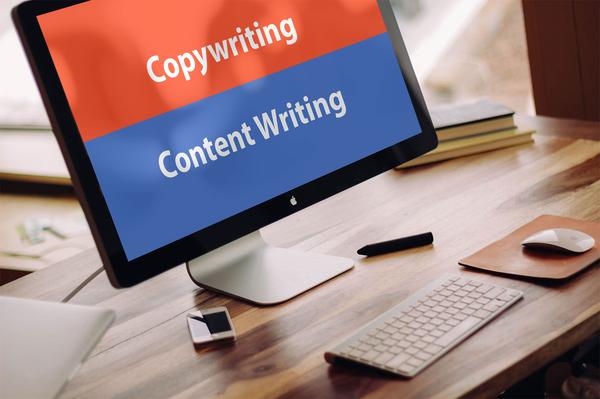
Don't Let AI Writing Tools Impact Your Freelance Writing Career: Here's How to Protect Your Business

Sam Hindman
Published onIn less than a year, thousands of writing gigs disappeared, and content mills that once relied on human freelancers now use AI-generated text. Clients are tightening budgets, expecting more work for less pay, and even seasoned writers are finding themselves competing with AI models instead of other professionals.
Writers who refuse to evolve will get left behind. Writers who adapt, specialize, and use AI to their advantage will thrive. And one of the biggest differentiators? Your portfolio. Whether you're building one from scratch or refining an existing one, platforms like Journo Portfolio make it easier than ever to showcase what AI simply can't replicate: your unique voice, creativity, and real-world impact.
This guide will show you how to stay ahead and save your business from the age of AI. If you're serious about keeping your freelance writing career profitable, sustainable, and future-proof, let's dive in!
Are Freelance Writers Losing Their Jobs to AI?
The short answer is yes. But, it's complicated!
The rise of AI, especially tools like ChatGPT, has absolutely shaken up the freelance writing world. A study analyzing 1.4 million job listings found that freelance writing gigs dropped by 30% in just eight months after ChatGPT launched. And jobs that are easiest to automate (like blog posts, SEO filler, and real estate listings) are disappearing the fastest.
It's not just about volume, though. The remaining jobs are harder, higher-paying, and more competitive. Companies still need copywriters, but now they want people who can do what AI can't: Craft compelling narratives, sell through emotion, and connect with human audiences.
So, does this mean freelance writing is dead? No. It means the market is changing. Writers who adapt, specialize, and leverage AI as a tool instead of fearing it are still making money (some, even more than before). But if you're writing $20 SEO articles or spinning out "About Us" pages? You might be losing some revenue soon.
What Types of Writers Are Most Impacted by AI?
Not all writing jobs are created equal. Some niches are getting hit hard, while others are actually seeing increased demand.
The most vulnerable are generalist content writers. AI-powered tools can generate content like listicles, social media captions, and on-brand copy in just a few clicks, making it harder for non-specialized writers to compete. AI text generators are creeping in fast if your work involves templated ad copy, social media captions, or simple call-to-action emails.
The writers least impacted by AI (and, in some cases, thriving) are those in specialized or high-stakes fields where human expertise is irreplaceable. For instance, technical writers remain in demand as AI struggles with complex subjects. Brand storytellers and creative copywriters are also safe, as AI still can't replicate true emotion, originality, or the kind of storytelling that builds deep brand connections.
Direct response and sales copywriters continue to hold their ground since AI can help with A/B testing and brainstorming, but the ability to craft words that close a sale is still very much a human skill.
And finally, the smartest freelancers simply aren't fighting AI. They're using it as a tool for outlines, research, and first drafts, then layering in their own strategy, creativity, and expertise to create content AI simply can't match. (More on this later!)
Other Industries That Have Been Impacted by AI-Generated Content
It's not just writers feeling the impacts of AI. AI-generated content is making waves across multiple industries, automating tasks that once required human effort:
Education: AI is writing personalized learning materials, grading assignments, and even creating course content. (Teachers, take note.)
Legal Services: AI tools can draft contracts, summarize case law, and generate legal documents---a game-changer for law firms but a headache for entry-level legal assistants.
Healthcare: AI is now writing patient education materials, summarizing medical research, and even drafting medical reports. (But don't worry, doctors are still in charge of the prescriptions.)
Finance: AI is behind automated financial reports, investment summaries, and risk assessments. Numbers don't lie, and AI is fast at crunching them.
How Your Freelance Writing Portfolio Can Help You Stand Out
AI-generated content can be technically correct, but it often reads like it was written by... well, a robot. Your portfolio should highlight what AI lacks: personality. Include pieces that show off your distinct tone, storytelling ability, and creative flair.
AI writing tools are great at surface-level writing, but when it comes to deep industry knowledge, they fall flat. Your portfolio should highlight your niche expertise, whether it's technical writing, finance, health, or long-form storytelling. Clients don't just want words; they want insight. Show them you can dig deeper than ChatGPT ever could.
AI-generated content follows predictable patterns. You? You can switch up your tone, adapt to different brands, and write with nuance. Your portfolio should reflect that. Platforms like Journo Portfolio make it easy to create a clean, well-organized portfolio that doesn't just show your work but also looks professional and engaging.
The Importance of Authenticity
AI can mimic tone, but it can't be genuinely human. That's where authenticity becomes your greatest advantage. People want to feel something when they read your writing. It can be funny, controversial, or even depressing: Just make it as deeply personal as possible.
Finding your authentic voice takes time, but once you have it? It's your biggest asset. This is what makes clients seek you out specifically. AI-generated content is interchangeable, but your specific writing process and tone are one of a kind.
Using Your Social Media Presence to Stay Relevant
Yes, privacy is important to many writers. But, unfortunately, visibility is a MASSIVE asset nowadays. Your social media platforms are an extension of your portfolio, and you must treat them as such. Don't be afraid to put yourself out there and share snippets of your work, behind-the-scenes insights into your writing process, and thoughts on industry trends.
Position yourself as an authority in your niche. The more value you provide, the more people trust you. The more people trust you, the more inclined they'll feel to send work your way.
If You Can't Beat 'Em, Join 'Em: Using AI Writing Tools to Your Advantage
Have you ever heard the phrase, "work smarter, not harder?" This is one that many writers have opted to agree with in recent months. Though there were some who thought AI to be a passing phase, something that would fizzle out once it lost its sparkle, they were soon presented with the truth: It's not just here to stay... It's getting better and better.
The truth is that, on its own, AI writing is still (inarguably) slop. Though generative AI has the power to do exactly that (generate content), it doesn't inherently make its output high-quality. It needs quite a bit of heavy programming and assistance to produce something that's even semi-palatable to a reader.
Enter: The AI writing assistant. Some freelance writers have chosen to take certain AI tools under their wing, training them in their own unique voice to receive an output that's uncannily like theirs. Others still do the writing portion of their work entirely independently but use AI to handle some tedious parts of their process: Administrative work, helping to brainstorm ideas, and fact-checking information, to name a few.
What are these writers using? Well, it's not ChatGPT! Here are three types of AI writing software to help streamline your content creation process:
1. Claude
Claude is becoming a fan favorite of freelance writers looking to streamline their workflow without sacrificing creativity. Unlike other AI content generators, Claude is built for collaboration and refinement instead of just output.
Freelance writers often use Claude for paragraph-by-paragraph editing, asking it to refine structure, adjust tone, or enhance clarity without rewriting the entire piece. It's also helpful for style calibration, allowing writers to match a specific voice.
2. Perplexity
Freelance writers spend a huge chunk of their time researching, and that's where Perplexity AI comes in! Unlike other AI tools, Perplexity functions as an AI-powered search engine, delivering real-time information with source citations so writers can trust the accuracy of what they're using.
For writers who juggle multiple projects, Perplexity cuts down research time dramatically, but like any AI tool, it's best used as an assistant rather than a replacement. Make sure you always verify sources, add your own expertise, and make sure the final piece feels authentically human.
3. Jasper
Freelance writers who specialize in SEO content swear by Jasper + SurferSEO, which is a great combo that helps them write, optimize, and rank on search engines faster. Writers can pull SEO data directly into Jasper, meaning they can write and optimize in the same place without jumping between tools.
What to do When a Freelance Writing Client Accuses You of Using AI
Some freelance writers are still AI purists; In other words, they don't believe in using any AI content generators to help them through their process. If this sounds like you, then you probably have one fear that comes secondary only to job loss: Getting falsely accused of using AI for your writing.
This is (understandably) frustrating. After all, it's offensive to be called generic and even more offensive to be labelled as fraudulent. If you find yourself in this situation, don't fret! There are several things you can do to protect your reputation.
Present The Evidence
For every AI-powered tool that exists, there are just as many AI detection tools. In theory, these should help clients verify whether the content is AI-generated text or human-written. But there's one big issue: most AI detectors are wildly inaccurate.
Not only are there several anecdotal stories of freelancers losing their writing jobs from false accusations of AI-generated text, but there are also research studies that prove these detectors aren't as legitimate as they're made out to be.
For instance, one study found that detection tools only provide accurate results 39% of the time. That's right, less of a chance than a coin toss. Some detectors boast much higher accuracy, like CopyLeaks, which claims to have the lowest false positive rate in the industry at 0.2%.
Let Clients in on Your Process
A lot of suspicion around AI-generated text comes from a lack of transparency. If your client is handed a finished piece without insight into how you got from blank page to final draft, they might assume you used an AI-powered tool to do it.
When a client is handed a final piece of content, like blog posts, they might seem suspicious solely because they don't know how you got from point A to point B. Perhaps, if you show them the true extent of your work, they'll be more receptive.
P.S. Many clients don't actually care if you use an AI writing assistant to bounce ideas or get past writer's block. They care that the final piece delivers value, aligns with their brand voice, and reads like human writing.
Become an Irreplaceable Master of Your Craft
Although many may dislike the candid nature of this sentiment, that doesn't make it untrue: AI isn't going to replace every writer. It's going to replace every mediocre writer.
If you're genuinely an excellent writer with a sharp wit and the ability to create quality content that gives your client an ROI, you likely don't need to worry about getting cut off of a team or contract. In fact, if you do have a client leave you for AI, they very well might come crawling back months later after seeing diminishing returns.
This means, above all else, you MUST get back to training. Figure out precisely your weak points, whether they're landing pages, product descriptions, or just coming up with those all-too-stressful catchy headlines.
If you're able to identify where your writing needs work, you can take the invasion of AI as an opportunity to become the best writer you can be!
Build Your AI-Proof Portfolio With The Help of Journo Portfolio Today!
Alright, "AI-proof" might be a bit of a stretch, but the premise stands: If you can present yourself as the most lucrative and highest-performing option, you won't need to worry about the robot overlords taking over your client work. Spend ample time networking, brush up on your skills, and, most importantly, create a portfolio that you can be proud of!
Journo Portfolio prides itself on balancing ease of use and potential for customization, making it one of the best portfolio builders online. It's in the name, after all! Check out our complete list of features, and get started with your free account today.




